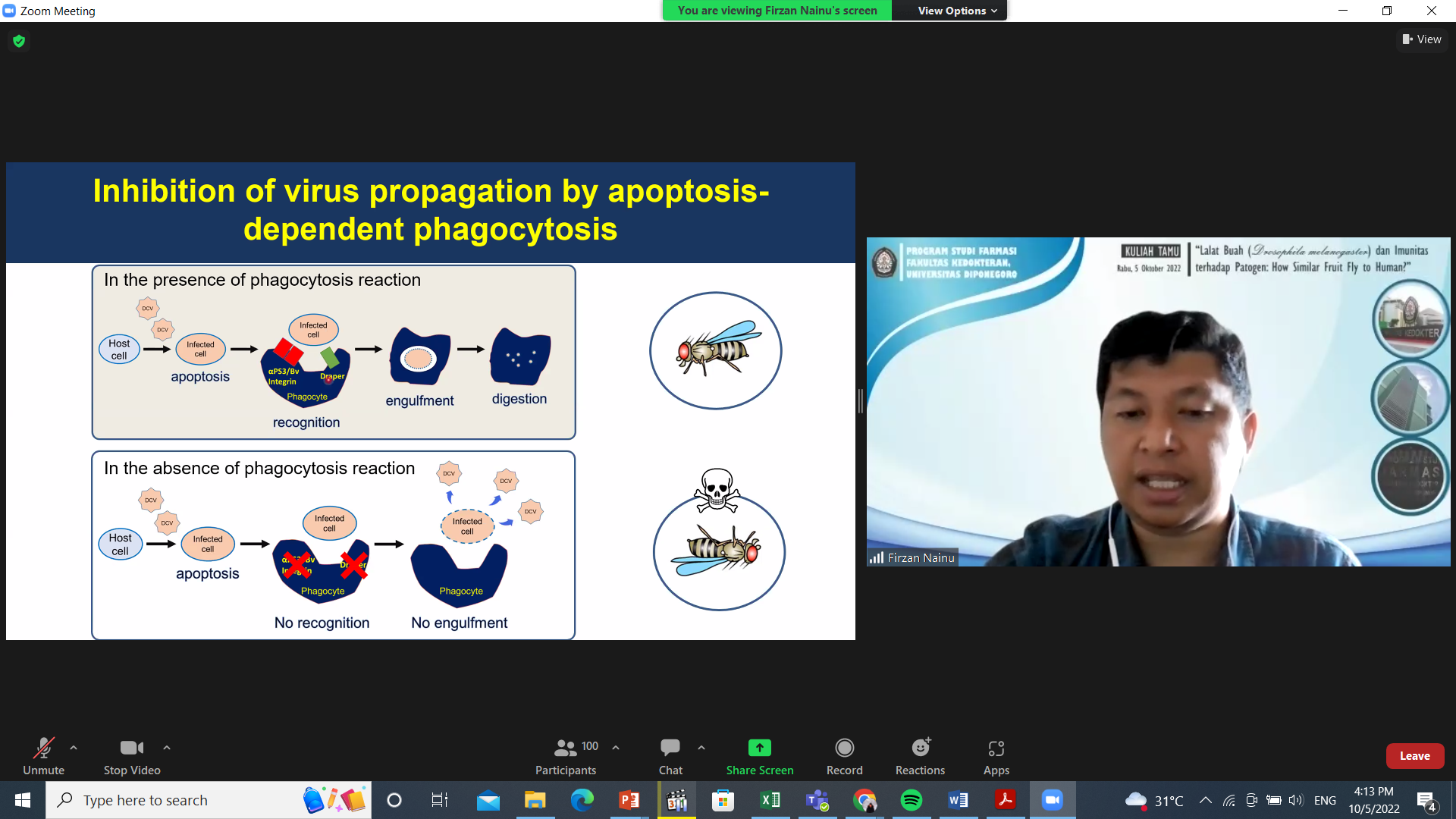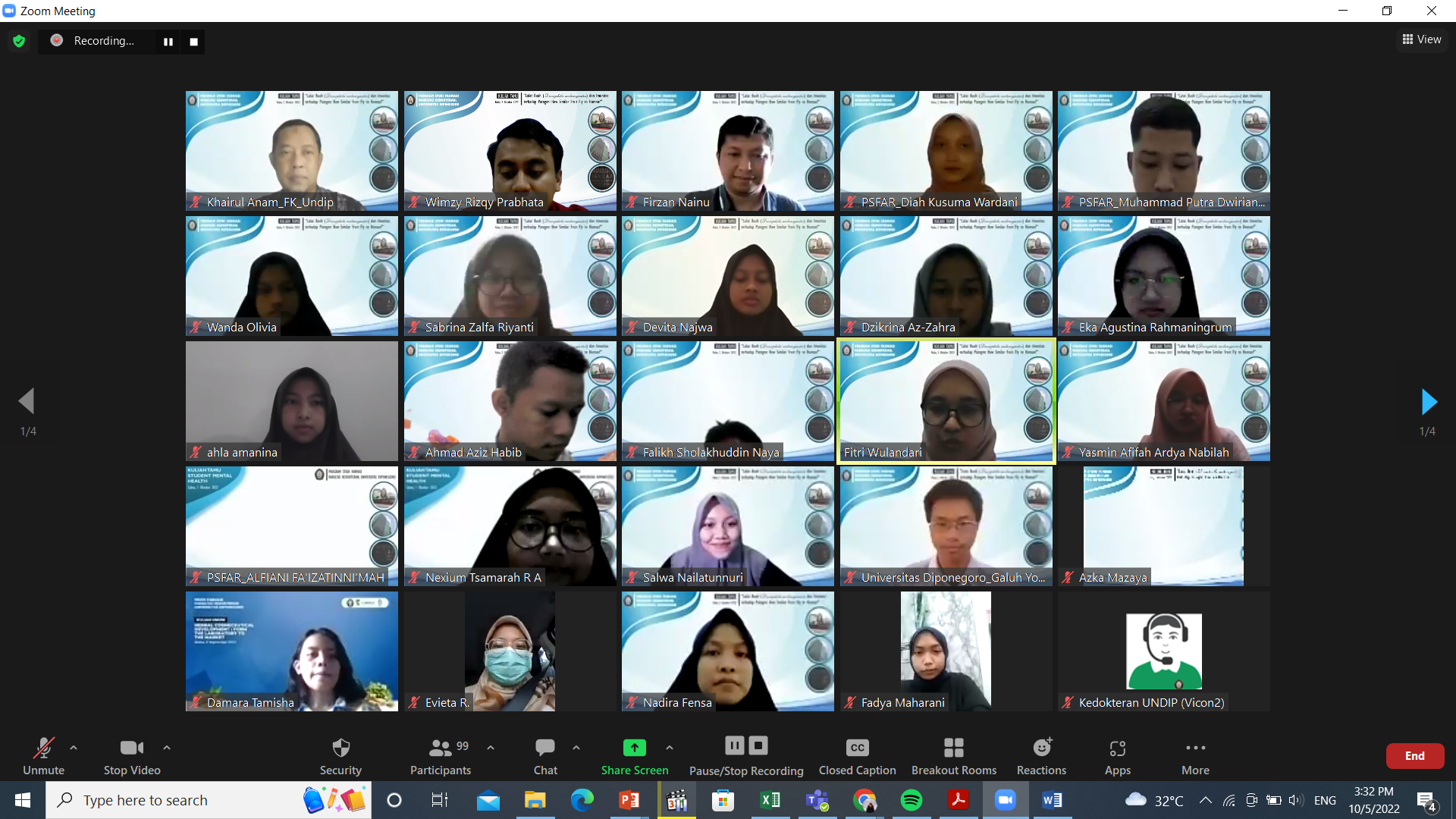The guest lecture on “Fruit Flies (Drosophila melanogaster) and Immunity to Pathogens: How Similar Fruit Fly to Human?” was held on Wednesday, October 5, 2022 online starting at 15.00. The speaker at this guest lecture activity was Mr. apt. Firzan Nainu, Ph.D. who is a lecturer in the pharmacology and toxicology laboratory of the Faculty of Pharmacy, Hasanuddin University. Mr. Firzan Nainu is a lecturer in the field of immunology and has a research focus in the field of immunology, especially in the use of fruit flies as a model of experimental animals.
Fruit flies are a very promising experimental animal model to use because they have a high level of genetic similarity with humans. In fact, there have been at least more than 5 Nobel prize recipients who used fruit flies as experimental animals in the study. Fruit flies have their own advantages as experimental animals. One of them is because of its short life cycle so that to get an adult fruit fly it only takes a short time so that it provides efficiency of research time. The process of raising fruit flies is also not as complicated as keeping on other models of experimental animals such as rats. Anesthesia of fruit flies does not need to use anesthesia, only needs to use CO2 gas so that in terms of cost it is lower. Fruit flies can also be used in genetic research both forward and reverse, this is possible because fruit flies can be modified to produce a specific mutant so that the expression of a gene can be observed properly.
In immunology research, the immune system of fruit flies has a high degree of similarity compared to humans, because fruit flies also have natural, cellular, and humoral immune systems. This high degree of similarity makes fruit flies have a high potential to be used as experimental animals in studying the human immune system. Fruit flies also have high potential as experimental animals in research related to infections, including observing the immune response to certain antimicrobials, determining the antimicrobial potential of a compound, and studying the function of proteins that play a role in dealing with microbial infections.
According to Mr. apt. Firzan Nainu, Ph.D., at Hasanuddin University itself, a research group has been formed called UFRG (Unhas Fly Research Group) which specifically develops fruit flies, both wildtype, mutant, and transgenic as experimental animal models in immunology and pharmacological research. This research group has collaborated with Kanazawa University, Queensland University, and Cambridge University. This group of expertise has also produced a lot of research outputs. This is a motivation for the Undip Pharmacy Study Program to be able to develop or participate in research that brings many benefits to the community.



